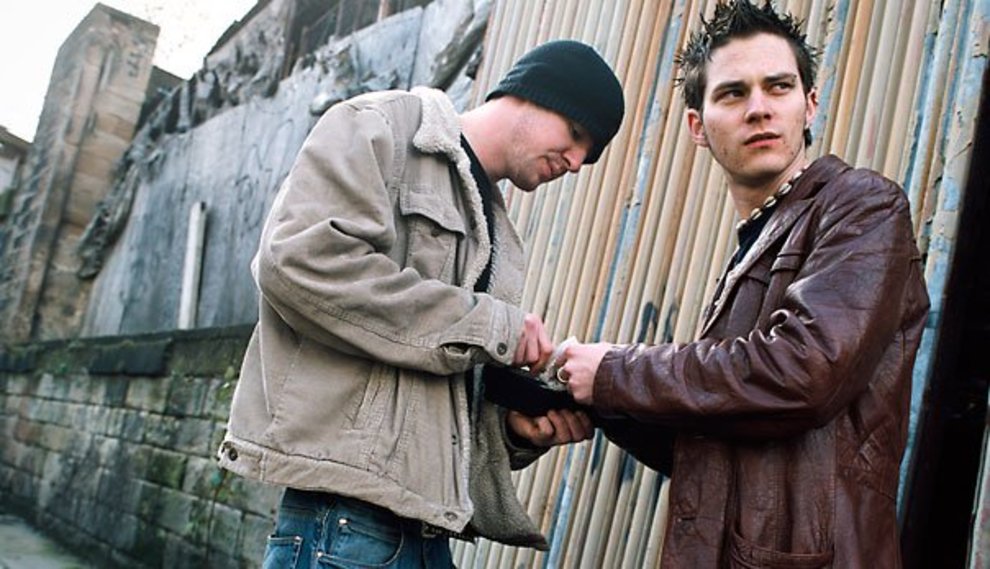He’s Likely Dealing From Our Home

* This post originally appeared on our Member Site blog, where experts respond to members’ questions and concerns. To sign up for our special offer and benefit from the Allies in Recovery eLearning program, click here.
“My son was in rehab for 5 weeks last Jan/Feb, and turned 18 in June. Prior to his stay at rehab he was often volatile and hostile, but after settling into the program he was a model resident. He also seemed proud of his sobriety, and we celebrated his milestones with him.
Recently, though, things have spiraled downwards. In the last few weeks he has grown distant and hardened. It’s difficult for me to pinpoint when this happened; he has had increased freedom since we allowed him use of a car primarily to go to therapy, 12 step meetings, and a GED class. But he stopped attending the GED class and seemed to stop going to meetings around the same time. Lately, he has been staying out of the house for extended periods, and has also started to once again become verbally abusive towards me.
He has a new girlfriend and her parents are OK with him sleeping there on weekends. He is very buddy buddy with her dad and his therapist said “that’s not necessarily a good thing”.
Obviously I am suspecting relapse. He has drug screens when he goes to therapy and when he turned 18 we had him sign a release giving us permission to see the results; however, unbeknownst to us the law changed after that so when I went to actually check his recent screens I learned that we no longer have access.”
Protecting your family from his dealing should be your priority
Your son returned from rehab just shy of his 18th birthday. He did well until recently but has since relapsed. You suspect this is the case and your description of the change in behavior does suggest it. He has stopped going to 12-step meetings and to GED classes, he’s skipping some therapy appointments, yet continues to use the car and is gone for long periods. You believe he is also selling drugs, something he did prior to entering treatment.
How upsetting it must be to see your son blossom after rehab, only to sink slowly back towards drug use, dishonesty, and criminal activity. You are discouraged, even ashamed, by your son’s choices, especially the drug dealing.
He succeeded once, he can do it again
You have considered many of the things CRAFT recommends. Your son went to treatment once and did well—he can do it again. He likely will need more intensive treatment again. People who sell drugs and abuse drugs don’t manage for long.
What you don’t describe is the drug use itself. It seems as important to you to stop the drug dealing. I can understand why. Your family is in danger. He’s using your house and your car for illegal business.
You are concerned about alienating him if you confront him. We would agree that a good connection between you two is vital. He may well need your help to figure out treatment again when things fall apart.
You need to protect yourself
However, it feels like an imperative that you set a firm boundary right away, in order to protect your home and car from his drug dealing. He is putting you at great risk.
Can you start by addressing the need to protect yourself from his drug dealing in a way that isn’t too confrontational?
Something like this….
Listen, I (not “we”—the parent that he hears from less often does the speaking) am so proud of you for addressing the drug use by going to treatment. I felt like I had my son back. I love you so much.
Something is changing, though.
It’s up to you what you do about it. You are responsible for what happens next. My need is to protect this family and our home. Something is going on. When you are ready we can talk about it.
For now, I cannot have us at risk. I must ask you to protect us from illegal activity. Please do not bring drugs or dealing anywhere near us. This is what can happen (give him a printout of this article)
For now, I cannot let you use the car. To get to appointments, we will pay for an uber/taxi. Addiction doesn’t go away. We are all living with it. Please help me protect us. We will help you when you become willing to get help.
He may dismiss you, he may not respect your wishes, but you have laid out a boundary. It is clear and does not aim to control him as much as it protects you. It is a first step.
He’ll need to start taking responsibility
The talk puts the responsibility on him. I’m not sure what to do about the girlfriend and her family. My hunch is to let it be. He is 18, her parents are adults. Also, they may not believe you. Their permissiveness will extend to his back door, in terms of a place to land outside your home, but that will likely explode as he will mess up. The consequences will clearly be his to absorb.
Addiction doesn’t extinguish itself all at once, like a toggle switch, especially at 18. You can provide your son with an immediate environment that doesn’t play into addiction. You can cultivate the stance of CRAFT: loving but clear limits, reinforcing the things he does right, remaining ready with help, and stepping away from all things drug involved.
Getting and keeping this stance is what you can do.
If there is no effort to follow your request, the idea of the daybed and foot-locker may be the next big step. This is about you and your home as well as about your son. Start by asking him to take responsibility.
image © via www.cuinsight.com
